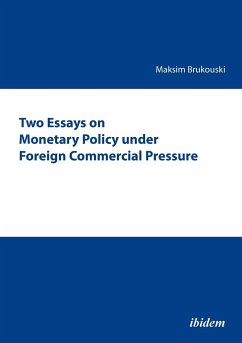Maksim Brukouski's study was inspired by the postwar economic history of Japan with a major focus on trade disputes with its largest overseas partner, the United States of America, accompanied by some nearly unique and 'mysterious' phenomena like decade-long deflation, the liquidity trap, and the high yen recession that could be observed in Japan after the collapse of the Bretton Woods system.
Commercial pressure to appreciate the yen associated with trade tensions between Japan and the US is a major non-mainstream explanation of the problems mentioned above. Despite many controversial discussions about this issue, there has been little theoretical research analyzing the role of political pressure in an affected economy and the channels through which it spreads its influence.
Brukouski's book provides two instruments to resolve these gaps: a comparative static model, and an extension to a baseline New-Keynesian DSGE framework. His analysis of the short- and long-run implications of mercantile pressure for monetary policy and the economy challenges the popular view that the exchange rate influences the trade balance in a predictable way, evaluates pressure costs and effectiveness, and reveals new perspectives on the possible origins of Japan's problems associated with trade disputes.
The results of his study serve as a warning for other countries with a similar foreign commercial reality, for example China, against repeating the same policy mistakes.
Commercial pressure to appreciate the yen associated with trade tensions between Japan and the US is a major non-mainstream explanation of the problems mentioned above. Despite many controversial discussions about this issue, there has been little theoretical research analyzing the role of political pressure in an affected economy and the channels through which it spreads its influence.
Brukouski's book provides two instruments to resolve these gaps: a comparative static model, and an extension to a baseline New-Keynesian DSGE framework. His analysis of the short- and long-run implications of mercantile pressure for monetary policy and the economy challenges the popular view that the exchange rate influences the trade balance in a predictable way, evaluates pressure costs and effectiveness, and reveals new perspectives on the possible origins of Japan's problems associated with trade disputes.
The results of his study serve as a warning for other countries with a similar foreign commercial reality, for example China, against repeating the same policy mistakes.








